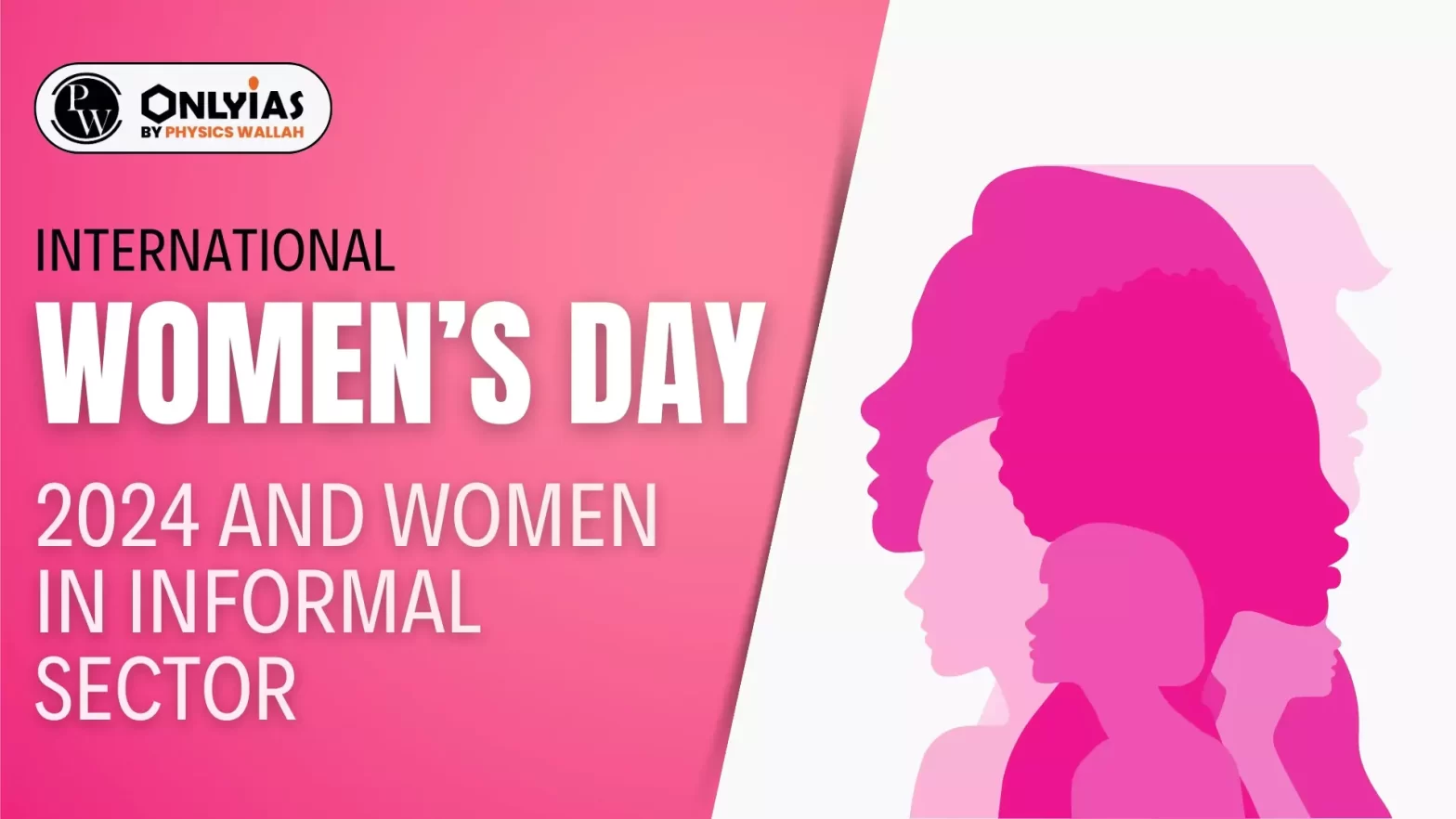Context:
This editorial is based on the news “International Women’s Day 2024 | Working women too, with a dream of good childcare” which was published in the Hindu. In celebrating International Women’s Day 2024, under the theme of ‘Investing in women: Accelerate progress’. However, Women in informal sector still face significant challenges in achieving gender equality.
Women in Informal Sector: Key Issues and Challenges
-
High Participation:
- According to a study by the International Labour Organization (ILO), more than 95% of India’s working women are informal workers.
- These women work in labour-intensive, low-paying, highly precarious jobs/conditions, and with no social protection.
-
Insufficient Data on the Effect of Informal Work on Maternal, Neonatal, and Child Health:
-
- A World Health Organization bulletin says that “women’s informal work is central to the feminisation of poverty”.
Examples of Schemes of Different States for Incentivising Health Seeking Behaviour:
- Tamil Nadu: Dr. Muthulakshmi Maternity Benefit Scheme.
- Rajasthan: Indira Gandhi Maternity Nutrition Scheme
- Odisha: Mamta Scheme
- Gujarat: Kasturba Poshan Sahay Yojana
- Chhattisgarh: Kaushalya Maternity Scheme
|
-
- Maternity benefits, including extended leave and work-from-home options, primarily benefit formal sector women, constituting less than 5% of the workforce in India.
-
Lack of Access to Quality Child Care Services:
-
- Women workers to leave the labour force, ceasing their earning, and exposing themselves to discriminatory employment practices, and to significant economic and health risks.
-
Childcare Support:
- India has paid less attention to address concerns around childcare support for informal women workers.
Solutions
-
Expansion of Integrated Child Development Services (ICDS) Infrastructure:
- Mandate of the Anganwadi centres under the ICDS: provide maternal and child nutritional security, a clean and safe environment, and early childhood education, thus facilitating the ability of women to re-enter work post-childbirth.
- Limitations: It does not cater to children under the age of three and it functions only for a few hours a day.
- Need for reforms: Early intake of children in the Anganwadi centres can allow mothers time for paid work and converge with the National Education Policy 2020 mandate that acknowledges quality Early Childhood Care and Education for children in the 0-6 age group.
- Extending the hours of Anganwadi centres can also address time constraints for working women.
-
Revitalising the Crèche Scheme:
Success cases for the provisioning of Creche:
- Self-Employed Women’s Association (SEWA) Sangini in some Indian cities provided creche facilities.
- Construction site Creches by Aajeevika Bureau in Ahmedabad and Mobile Creches in Delhi.
- The Building and Other Construction Workers Welfare Board mandates the running of crèches.
|
-
- Adding a network of public and workplace crèches can be a significant step. Crèches closer to the workplace allow for timely breastfeeding and attending to emergencies.
-
Improving Maternity Benefits:
-
- The Pradhan Mantri Matru Vandana Yojana (PMMVY) offers insufficient cash support reducing the entitlement from to ₹5,000 contrary to the NFSA’s recommended minimum of ₹6,000. Improving maternity benefits will ease the financial burden of Childbirth and Childcare.
Conclusion
It is imperative that affordable and quality child care infrastructure is considered as an employment-linked benefit and as a public good. There is a need to expand the care worker infrastructure, especially the Anganwadi worker and helper, who are already overburdened and underpaid.
Also Read: NCRB Report 2022 On Crime In India
| Prelims PYQ (2017):
Which of the following gives ‘Global Gender Gap Index’ ranking to the countries of the world?
(a) World Economic Forum
(b) UN Human Rights Council
(c) UN Women
(d) World Health Organization
Ans: (a) |
![]() 8 Mar 2024
8 Mar 2024
